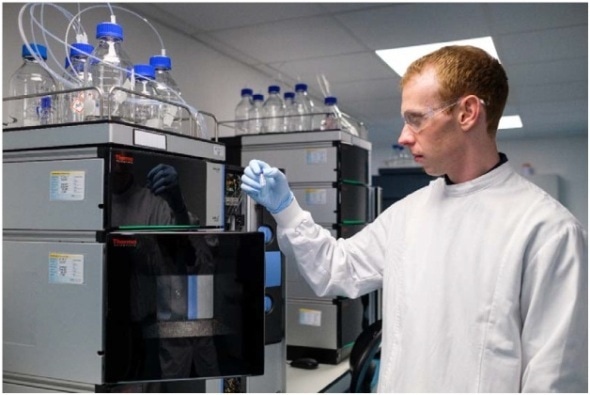Sartorius Stedim Biotech (SSB), a leading international supplier for the biopharmaceutical industry, announced the launch of a full range of chemistry testing services. Offered by its subsidiary Sartorius Stedim BioOutsource, they characterize the physicochemical properties and structural attributes of therapeutic monoclonal antibodies (mAbs). The service platform methods have been developed to ensure rapid sample analysis and reporting for mAbs and biosimilars.

At its facility in Glasgow, Sartorius Stedim Biotech now offers a complete range of chemistry testing services.
This comprehensive range of chemistry testing services complies with the well-established ICH Q6B scientific guidelines for pharmaceuticals for human use, and includes methods to characterize protein structure, carbohydrate profile, post-translational modifications and impurities utilizing UHPLC and LC/MS instruments. To provide these services, SSB has expanded laboratory space by 340 m2 at its facility in Glasgow, UK, and has appointed new scientists with extensive chemistry testing experience.
This chemistry testing offer complements the company’s existing range of off-the-shelf biological assays for biosimilar products, providing a complete solution from one contract partner. This allows structural and functional analyzes to be conducted in parallel to deliver a comprehensive data package for regulatory submissions. As a result, the full-range of services enables SSB to even better support its customers in their drive to bring innovative biologic drugs to market.
“Rapid data-driven decisions at critical stages are crucial for the successful development of biosimilars. Our chemistry testing services enable biosimilar manufacturers to benefit from side-by-side biological and physicochemical analyzes to gain the in-depth characterization data required,” explained Dr. Daniel Galbraith, Chief Scientific Officer at Sartorius Stedim BioOutsource. “Expanding our portfolio with these new services was a logical step following the successful launch of our Released N-Glycan assay in 2016,” he added.